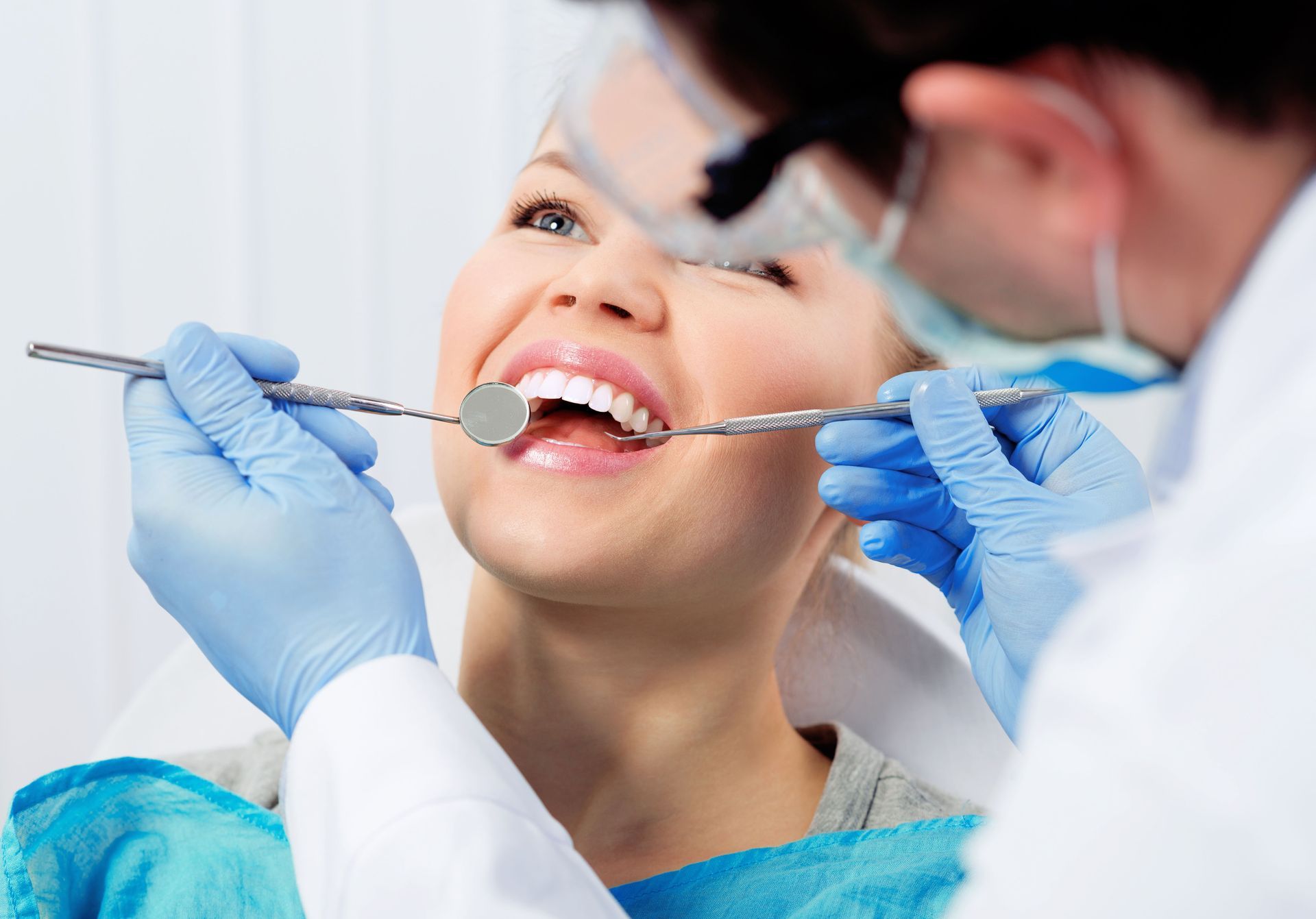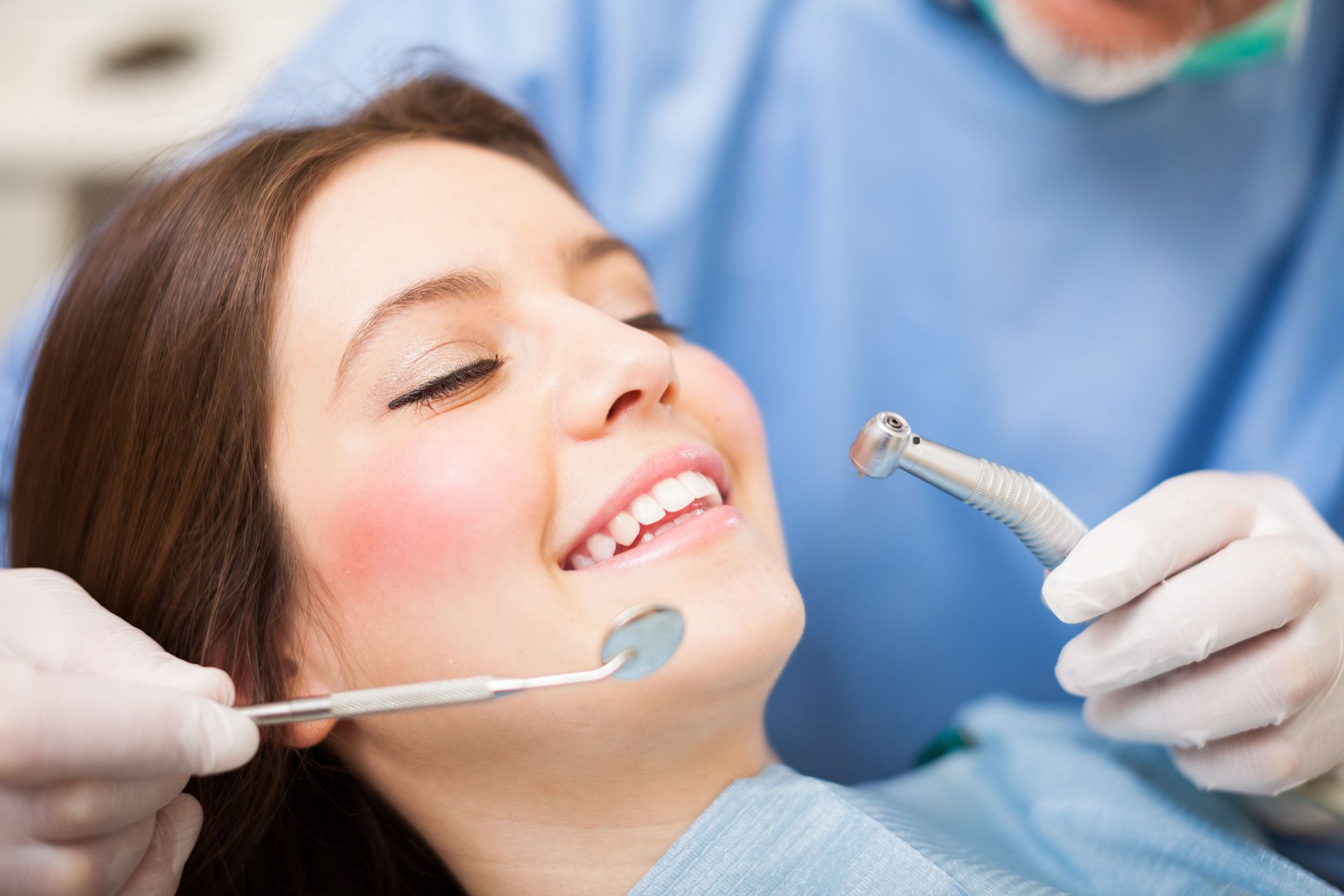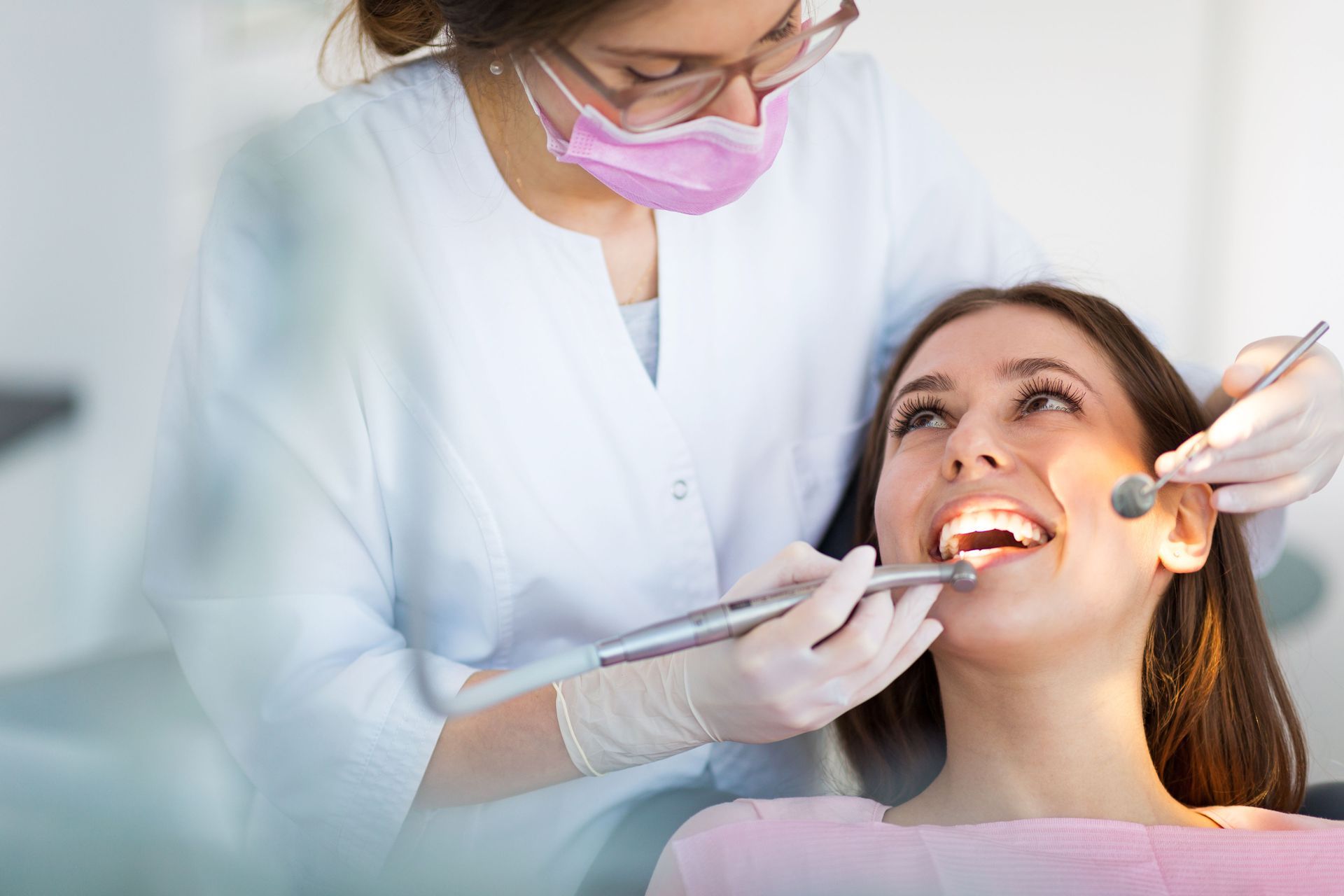August 15, 2025
When most people think about going to the dentist, they picture a cleaning, maybe a bit of poking and prodding, and the hope that they’ll walk out cavity-free. But a routine dental examination is far more than a check for plaque or a quick look at your brushing habits; it’s one of the most important tools in preventive healthcare.
The truth is, your mouth offers early warning signs for a variety of health conditions, some of which can be serious if left unchecked. From spotting the beginnings of gum disease to identifying signs of oral cancer or systemic illnesses, a simple dental check-up can be the first line of defense in protecting your overall well-being.
In this blog, we’ll walk through the surprising ways a standard dental examination can uncover bigger issues before they become major problems. Whether you’re someone who visits the dentist like clockwork or someone who’s long overdue, this guide will help you appreciate why those short visits are more powerful than they seem.
Catching Cavities Before They Require Major Work
Let’s start with the most obvious benefit: detecting cavities early. A dental examination allows your dentist to spot tooth decay while it’s still in its early stages—before you even feel any pain or sensitivity. Early cavities often don’t cause noticeable symptoms, which is why relying solely on how your teeth feel isn't a good strategy.
When cavities are caught early, they can usually be treated with a simple filling. But if left untreated, decay can progress deeper into the tooth, reaching the nerves and requiring more invasive treatments like root canals or even extractions. That means more time in the chair, more cost, and potentially more damage to your smile.
The earlier a problem is identified, the easier and more affordable it is to fix. That’s the real magic of regular dental check-ups. They're short appointments with long-term impact.
Identifying Gum Disease Before It Escalates
Gum disease, or periodontal disease, is another condition that can sneak up quietly. It’s incredibly common, especially in adults, and it often begins with very mild symptoms—like bleeding gums when brushing or occasional bad breath—that are easy to ignore.
During a dental examination, your dentist or hygienist will check the health of your gums using special tools to measure gum pockets, detect inflammation, and assess tissue loss. These early signs can be reversed with proper care, such as a professional cleaning and better at-home brushing and flossing techniques.
However, if left undiagnosed and untreated, gum disease can progress into a chronic condition that leads to gum recession, tooth loss, and even bone damage. Emerging research has also linked advanced gum disease to other health problems, such as heart disease and diabetes.
That’s why gum health assessments are such an integral part of every dental visit—they help protect more than just your teeth.
Spotting Signs of Oral Cancer and Systemic Illness
Perhaps one of the most important but often overlooked aspects of a dental examination is the oral cancer screening. This is a quick, non-invasive process that involves checking the tongue, lips, cheeks, throat, and other soft tissues for any unusual spots, lumps, or discolorations.
Oral cancer can be deadly if caught too late, but early detection significantly improves survival rates. Dentists are trained to recognize the subtle early signs that most people wouldn’t notice on their own. And because many patients visit their dentist more regularly than their physician, a routine dental check-up may be the first time a warning sign is spotted.
Beyond cancer, a dental examination can also reveal signs of systemic illnesses like diabetes or vitamin deficiencies. For instance, persistent dry mouth, bleeding gums, or changes in tissue color can all hint at bigger health concerns. Your dentist might not be able to make a formal diagnosis, but they can refer you to the right healthcare provider for follow-up.
In this way, dental visits play a key role in your broader health, not just oral care. They offer a unique opportunity to detect serious health issues early—sometimes before symptoms even appear. Prioritizing regular dental check-ups could ultimately lead to earlier treatment and better overall outcomes.
Preventing Costly Restorative Work Through Early Action
Let’s talk about the financial side for a moment. It’s no secret that dental treatments can be expensive, especially when problems are caught late. Crowns, bridges, implants, and other restorative solutions often come with significant costs—not just in money, but in time, discomfort, and follow-up appointments.
The global demand for these treatments is growing fast. According to Research and Market, the dental restoration market is set for a significant surge, poised to expand by USD 9.77 billion between 2024 and 2029. This boom underscores how common and costly dental restoration has become.
But here’s the good news: a simple dental exam is one of the easiest and most affordable ways to avoid becoming part of that statistic. By catching issues like wear and tear, small cracks, or failing old fillings early, your dentist can recommend simple interventions that prevent the need for full restorations down the line.
And just like regular vehicle check-ups extend the life of your engine, regular dental visits can help preserve your natural teeth and avoid costly procedures in the future. A small step today can lead to major savings—and healthier smiles—tomorrow.
Encouraging Better Daily Habits and Ongoing Education
Beyond diagnostics, a dental examination offers an opportunity to get personalized advice on how to better care for your teeth and gums. Everyone’s oral health situation is a little different, and your dentist can provide tips based on your specific risk factors, habits, and needs.
Maybe you grind your teeth at night without realizing it, or you’re brushing too aggressively and damaging your gums. Perhaps your diet is contributing to enamel erosion, or you’re not using the right kind of toothbrush for your mouth. These small details can add up over time, but they’re all things your dentist can help you adjust during a check-up.
There’s also something to be said for the psychological effect of regular dental care. People who visit the dentist regularly tend to be more proactive about their oral hygiene at home. It’s a bit like working out more consistently when you know you have a trainer checking in on your progress. When you see a professional regularly, you’re more likely to stay accountable for your own daily habits.
A dental exam isn’t just a passive inspection—it’s a chance for collaboration and education that helps you take control of your oral health.
It’s easy to underestimate the value of a routine dental examination. After all, they’re often short, relatively painless, and may not seem urgent if you’re not experiencing any symptoms. But those few minutes in the dentist’s chair could be the reason you avoid major dental work, catch a serious health issue early, or keep your natural teeth well into old age.
Whether it’s spotting decay before it spreads, identifying gum issues early, or even noticing warning signs of bigger health problems, the benefits of a dental exam go far beyond the surface.
If it’s been a while since your last dental examination, now is the perfect time to take that step. Schedule your next visit with Distinctive Dental Services, PA, where our team is dedicated to helping you stay ahead of problems and maintain a healthy, confident smile for years to come.






